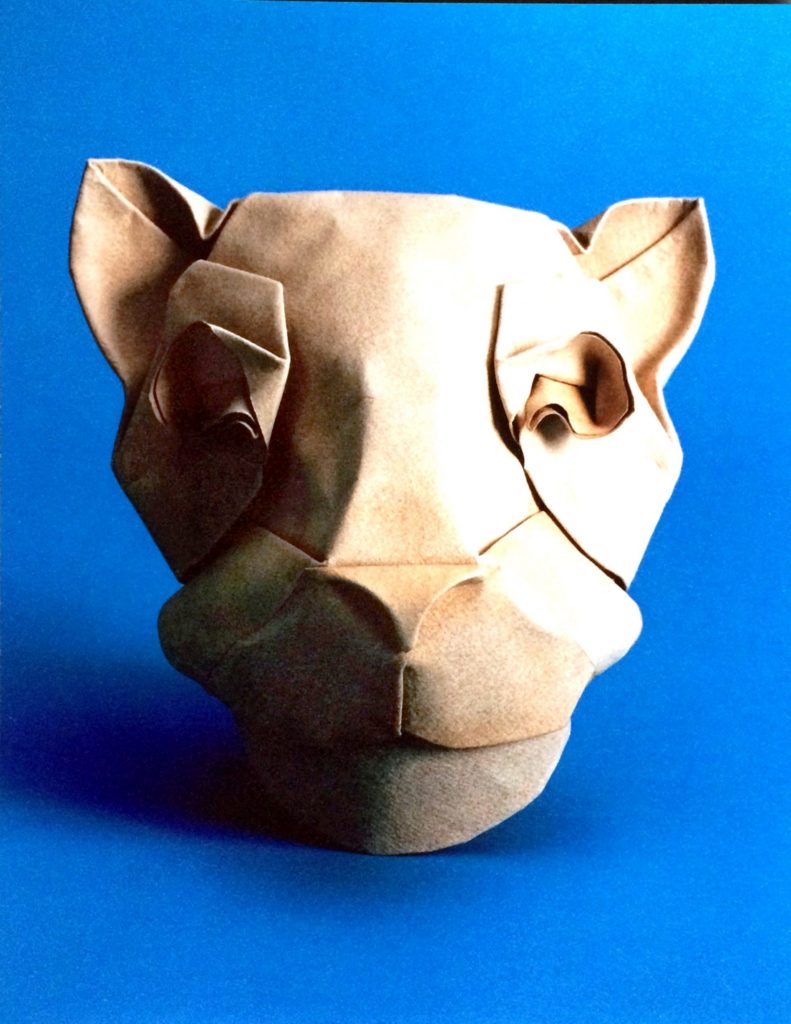Last updated on January 23, 2025
From Revolutionary Left Radio, Dialectics Deep Dive 4: Finishing Spinoza, Beginning of Deleuze and Guattari.
Quoting Breht’s guest, Matthew Furlong, about 10 minutes into the episode:
I wanted to quote from that documentary I recommended about origami in the first episode, Between the Folds, which I think is from 2010. And there’s a quote from a really interesting origami artist who also makes his own paper named Michael LaFosse, and he says, ‘origami is a metamorphic art form. Sculpture and painting, when you’re adding paint to canvas and you’re adding clay and welding things together, that’s an additive process. When you’re chipping away at wood and stone and cutting paper, that’s subtractive. With origami, you’ve got that piece of paper and you don’t add to it. You don’t take away from it. You change it. And that’s a good sort of way of crystallizing the logic of what Spinoza means by substance when he talks about substance as nature or substance as God or God as nature.
RLR does several episodes on Spinoza with Matthew. An earlier episode, not timestamped, got me thinking about “events”, in relation to Spinoza’s materialism. So for now here’s an excerpt from Beth Lord’s book Spinoza’s Ethics (link), Chapter 1, p. 59:
Spinoza therefore deftly avoids Descartes’ problem of mind–body interaction. Descartes was unable to offer a convincing explanation of how mind and body interact, given that they are supposed to be different kinds of substance with nothing in common. For Spinoza, this problem does not arise. First, mind and body are not substances at all; second, causal interaction between the attributes of thinking and extension is ruled out (P6). There can therefore be no interaction between mind (a mode in the attribute of thinking) and body (a mode in the attribute of extension). But mind and body perfectly correspond to one another, because the mind is the idea of the body and, due to parallelism, everything that happens in the body happens also in the mind. The mind comprehends everything that happens to the body, but does not cause any effects in the body. And the body’s experiences do not cause ideas in the mind, but these experiences are directly and truly known by the mind. If mind and body are one thing, seen under different lenses of the microscope, then it is incoherent to talk about interaction. Similarly, there can be no question of the reduction of mind to body, or body to mind. Since mental events and physical events are the same events, seen under different lenses, it is incoherent to suggest that mental events could be reduced to physical events, or vice versa. On the contrary, every physical event in the body is also a mental event, as it is actively comprehended in the mind.
Ah, okay, went back and found that bit from the first RLR Deep Dive Episode, and I’ll just quote Matthew at length since there’s plenty of pearls here (with the key part being Foucault buttressing Spinoza):
I take this idea of an incorporeal materialism which is sort of like a subset of dialectical materialism from someone who I think has been severely misunderstood like many of this person’s friends and comrades, which is Michel Foucault, who I think his reception in Western academia has been a complete catastrophe and it doesn’t reflect the nature of his thinking at all. And by the way, if there’s anyone that’s interested, I can’t remember the interview will try to find it, but there is an interview where he says, ‘If you want to understand what I’m doing, do not start with my books. My books are a way for me in a condensed form to expel something that’s been troubling me for a long time. If you understand what I understand what I’m doing, start with my letters to the editor, or interview in the newspaper and if you like that, then come to some of my free lectures. They’re all free. They’re all open to the public and come to that, but just don’t start with the books.’ And Western academia starts with the books, because you know, they’re dense and they’re really complex and weird and you know, sexier and adventurous right, but it ends up botching what he’s talking about. So there’s his inaugural lecture at the College of France, which is what inaugurated 14 years of weekly lectures free to the public that he gave, and that, you know, these lectures are all published in translation now. He talks about the sort of object that he’s most interested in, which is what he calls an event. And he thinks of things like you know, MCM’, the development, the establishment of that dynamic MCM’ is an event for Foucault – it’s an incorporeal thing. He says, in his analysis, the fundamental notions that impose themselves are no longer those of consciousness and continuity with their correlative problems of freedom and causality. They’re not those of sign and structure. They are those of event and series with the game of notions tied to them: regularity, contingency, dependence transformation. But if discourses must be treated as sets of discursive events, what status much we give to this notion of event which has been so rarely prized by philosophers? Of course, the event is neither substance nor accident, neither quality nor process, the event is not of the order of the body. Yet, it is not immaterial. It is always at the level of materiality that it takes effect and is in effect. It has its place, and it consists, in the relation, coexistence, dispersion, narrowing, accumulation and selection of material events. It is neither the act, nor the property of a body, it produces itself as an effect, from and within a material dispersion. Let us say that the philosophy of the event must advance in the direction at first glance paradoxical of the materialism of the incorporeal.

